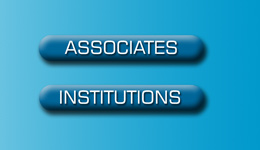WHAT
IS AN ASSOCIATE AND HOW DO YOU BECOME ONE?
An
Associate is an experienced manager who wishes
to continue working in the education sector as a freelance consultant.
To become a FEIMA Associate please submit a detailed CV to FEIMA
administration; references will be taken up and your name will
be kept on FEIMA’s database. If an appropriate assignment
comes up FEIMA may put forward your CV to the requesting provider,
who might invite you for an interview; appointment is made by
the institution. FEIMA invoices the institution for management
costs. FEIMA does not guarantee to provide Associates with assignments
as all interim work is subject to requests from and acceptance
by education institutions.
ASSIGNMENTS
FEIMA is a successful small business. Many Associates have completed
a variety of assignments over the past 6 years. We started as
a service to Further Education, and are expanding into other Education
sectors.
We currently have a number of enquiries from education providers.
We still need people with a range of curriculum and support
skills, in any Education sector. If you know anyone suitable,
put them on to us!
Associates are requested to e-mail, or telephone if they are on
holiday, or unavailable for work. To be sure of picking up on
opportunities make sure your answer phone or voicemail or mobile
‘phone is on, and check your emails every day. Calls may
come day or evening.
RECOMMENDATION OF ASSOCIATES
We are grateful to present Associates for recommending potential
new Associates.
INSURANCE
We can suggest a broker on request.
FORMING A LIMITED COMPANY
The total cost of company formation should be under £200.
Check with your local accountant how much he/she charges for keeping
the books. FEIMA can suggest an experienced accountant who offers
a service for a monthly charge.
A number of Associates and potential Associates have enquired
about entering into direct contracts with Institutions via FEIMA,
e.g. as a "sole trader". The Inland Revenue are now
looking more closely at what constitutes an employment contract,
and Institutions might find themselves having to pay tax and NI
for Associates in arrears if the IR investigates, unless they
can prove that the Associate is definitely working as self employed.
The problem arises when the Associate is carrying out management
functions, not just consultancy where they come and go. An employment
contract might be the best option in certain circumstances, but
not if you are staying away from home or travelling some distance,
when expenses will be taxable.
Please view our "Featured
Profiles" page.
Click here to register
as an Associate
Click here to register
as an Institution
Taxation changes
The latest budget has made it less advantageous to work through
a limited company, but there are still benefits:
1. Small company Corporate profits are now taxed at an average
of 19% (on £50,000 of profits); instead of your personal
rate of 22% or 40%. So if profits are not distributed as dividends
or salary tax can be delayed and reduced. If you pay yourself
a small salary and a large dividend national insurance payments
can be reduced. This can reduce entitlement to benefits including
the second pension. Salary is taxed at the normal rate, which
over the personal allowance & initial band of 10% is 22% and
then 40%.
2. You now pay tax on your corporate profits nine months after
the year end; this can help with cash flow!
3. The liability for any damages from legal action against a contract
with your limited will be the responsibility of your company,
instead of being a personal liability.
VAT
The maximum turnover before registration is required is £60,000
for the year ending April 06.
Generally Associates should not VAT register if under the allowed
turnover as the added VAT cannot normally be reclaimed by educational
institutions, and they will then want to pay lower daily rates,
or reduce the number of days to keep in budget.
These comments purely advisory are not meant to be a substitute
for checking with an accountant, the tax man or a lawyer. |

